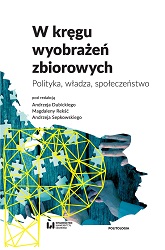Przemianowywanie ulic w Polsce 1989–2016. Charakterystyka zagadnienia
Renaming the Streets in Poland between 1989 and 2016. Problem Characteristics
Author(s): Bartłomiej Różycki
Subject(s): Politics / Political Sciences, History, Social Sciences
Published by: Wydawnictwo Uniwersytetu Łódzkiego
Keywords: communist Poland;contemporary Poland;street names;symbols;cultural landscape
Summary/Abstract: This paper discusses the subject of politically related street names which were introduced in Poland by the communist regime, as well as the attitude towards them in contemporary democracy. After World War II urban toponomy was widely used in Poland as a mean of ideological persuasion, commemorating persons, events and values related to the communism. The goal of such actions was to demonstrate communist domination and to shape social attitudes of obedience and acceptance of the existing order. During and after the democratic transition of 1989, street names related to the communism were massively removed, although many of them remained in the public sphere, especially if they survived the climax of symbolical decommunization of 1990. In this paper the most important aspects of the renaming process are discussed: political actors involved and relations between them (including recent intention of the central government to dominate this process, formerly belonging to the exclusive competence of the local authorities), arguments for and against streets renaming, most common trends regarding introducing new names, eventually controversies which arise in the process, especially concerning patrons whose relation with the communist ideology may be questioned. Additionally, results of a quantitative analysis are presented in order to examine the difference among various regions of Poland regarding tolerance towards still existing communist toponomy, which brings interesting results concerning former German lands, so called “Recovered Territories”, which seem to have incorporated the communist heritage into their identity in a much bigger degree than other parts of the country.
Book: W kręgu wyobrażeń zbiorowych. Polityka, władza, społeczeństwo
- Page Range: 145-172
- Page Count: 28
- Publication Year: 2019
- Language: English, Polish
- Content File-PDF

